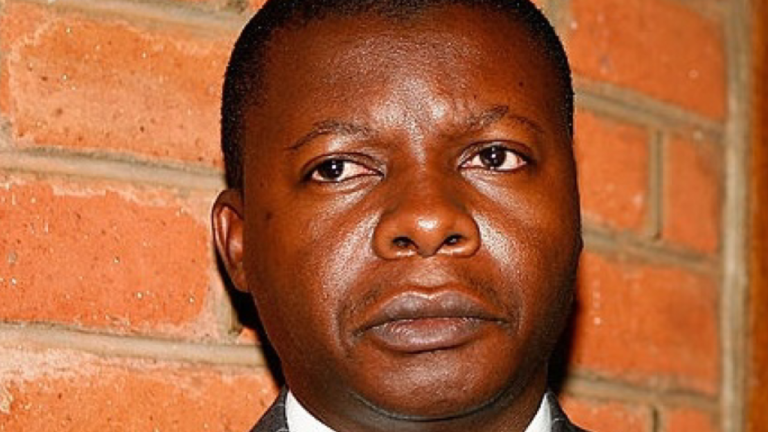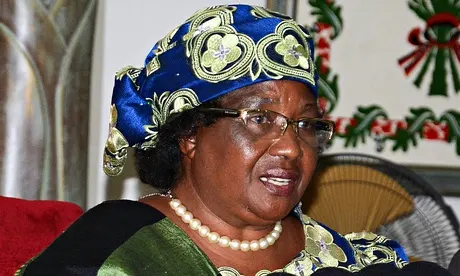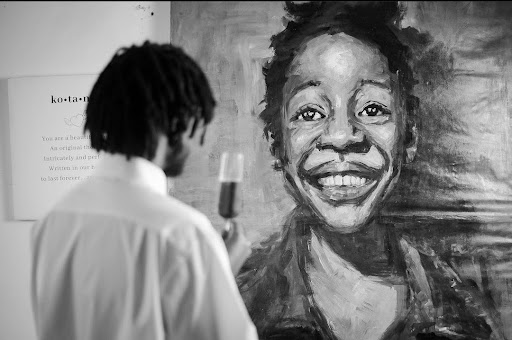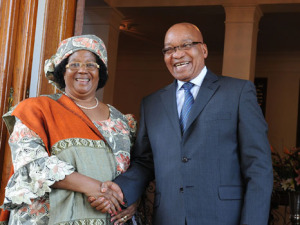BY PIJ REPORTER
Britain’s anti-corruption authorities, alongside Malawi’s Anti-Corruption Bureau (ACB), last week arrested Malawian-born businessman Zuneth Sattar, alongside several associates in the United Kingdom and Malawi, in a joint operation that further saw several homes and offices, both in Britain and Malawi, raided.
The arrests started on Tuesday morning, following a three-year-long investigation by Britain’s National Crimes Agency (NCA) into Sattar’s suspected corrupt dealings with Malawi government.
The investigation focuses on the businessman’s dealings with both the Peter Mutharika administration and the current Lazarus Chakwera administration, with senior officials for both tenures facing possible legal peril.
Under the UK anti-corruption laws, UK citizens and residents can be prosecuted for corruption abroad and the agency had previously frozen Sattar’s UK bank accounts which resulted in a court battle.

ACB Director Martha Chizuma confirmed to PIJ the arrests and raids but referred PIJ to UK’s officials for comment.
“We are cooperating with our UK partners but this matter is still under investigation and I cannot provide any more details,” said Chizuma.
NCA Press Office did not respond to questions from PIJ on the matter and a press officer who responded to calls on the matter asked for more time.
A source at the UK High Commission in Lilongwe also confirmed the arrests on Tuesday night but said the UK government would not be issuing a comment until the investigation was complete.
“I guess there is a very strong effort not to have the leaks ahead of the official announcement. I guess they may be wanting to collect documents and information and so they do not want to give the people advance warning,” said the source.
The UK and ACB have reportedly signed a Memorandum of Understanding (MOU) on how the two sides will be conducting investigation and subsequent prosecution of those arrested, sources further confided in PIJ.
Ahead of the arrests, unspecified number of NCA officers flew to Lilongwe to coordinate the operation with ACB. Others circled Sattar’s houses and homes in Leicester and Lilongwe.
After the arrest, Sattar was immediately granted bail which under UK laws allows him to access travel documents and travel.

The development comes as the UK has intensified the fight against corruption abroad with passing of Britain’s new Magnitsky Act, which—like a similar law enacted in the United State—is named after Sergei Magnitsky, a lawyer who was arrested and later died in prison in Russia after accusing Russian officials of massive tax fraud.
The new law gives the UK government the power to penalize those it says are credibly involved in the most serious violations of human rights and corruption. Other measures include freezing their assets and barring them from visiting Britain.
Recently, Britain also charged 14 Russians using the Act. The 14 Russians were implicated in what the British government described as a $230 million fraud; the case uncovered by Magnitsky. They include Dmitry Klyuev, identified as then-owner of Russia’s Universal Savings Bank.
Britain also targeted Ajay, Atul, and Rajesh Gupta, Indian-born brothers at the centre of a South African corruption scandal which contributed to the downfall of former President Jacob Zuma.
They are accused in South Africa of using their relationship with Zuma to profit financially and influence senior appointments. The Guptas and Zuma have denied wrongdoing.
Near-dawn Raids
The raids simultaneously started at 6 am Malawi time—5am London time, according to multiple officials briefed on the matter.
Sattar’s homes and offices in Leicester were raided by NCA agents— who arrested Sattar and five of his associates—believed to be among them, his wife and brothers. (The PIJ could not independently confirm the details of the arrested officials.)
In Lilongwe, ACB officials with support from NCA agents raided Sattar’s residence and offices—walking away with troves of documents, phones, computers, and other items containing possible evidence.
According to the sources close to the operation, precision was key to the operation: on the ground, UK and ACB agents asked for timing to be inch-perfect and worked a plan to ensure no leaks around the events.
Days before, the ACB discreetly obtained a seizure and search warrant for the homes from Lilongwe Magistrates Court.
The local associate of Sattar —only identified by one source by his first name Ashock—was later arrested after ACB finished the raid—going away with troves of documents, gadgets, and other possible evidence for crime.
A lawyer (name withheld) availed himself to the ACB to defend Sattar’s local associate while the Bureau was in the process of the raids— but the Bureau asked him to leave the scene as the lawyer’s client –Ashock—had not been arrested or charged, yet.
“Several officials are going to be implicated on the matter. Officials have raided his offices. Several arrests are going to be made and announcement is due to be made. He is in custody in the UK,” a source told PIJ hours after the first arrests in Leicester.
Years in the Making
In the UK, Sattar is listed as Director of Xaviar Limited and Xaviar Investments Limited whose interests include property investments both residential and commercial properties. Outside business, he is involved in charity particularly two prominent charities—Muslim Hands and the Lia Relief Trust.
In Malawi, where Sattar grew up—and assumed to have made most of his money—he is a major supplier to the Malawi government: supplying to the military, police services, Immigration department, prisons services, and others—running a fleet of several companies trading under Ocean Ltd.
According to sources at the Bureau, until the UK notified the Malawi government of its pending action, Sattar was not under any formal investigation by the Bureau.
Previously, he was, however, allegedly involved in the 2013 Cashgate scandal.

In December 2015, under legal guidance from the then-Attorney General Kalekeni Kaphale, the Bureau cleared Sattar-connected companies from involvement in the 2013 Cashgate scandal—the biggest theft of public funds in Malawi’s history.
Three years earlier, the British government had funded Baker Tilly’s forensic audit into Cashgate which, among others, found that two Sattar-linked companies, Top Prima and Rummage Pace, were “the biggest beneficiaries of Cashgate”—receiving K12 billion in payments for purported supplies to the Malawi Defense Force.
The report said the items –arms and ammunition—were clearly overpriced and suspicious and that Rummage Pace—which between 23 October 2013 and 21 October 2013 had received government funds totaling, at least, K5 billion through Foreign Currency transfers—could not be traced.
No documents from the Office Director of Public Procurement (ODPP)—now rebranded as Public Procurement and Disposal Authority (PPDA)—supporting the said payments could be traced either.
The report concluded: the contracts and supplies were fictitious.
“No evidence or request for proposal has been noted. Reference is made to single surrendering approved by Ministers of 15 August 2012 for procurement of riffles from Top Prima and Rummage Pace. No bank Guarantees have been (sic). No company due diligence was performed prior to payment and Rummage Pace has no (riding history in the supply of goods procured,” read part of the Baker Tilly report.
But a bureau spokesperson confirmed in 2015 that after months of investigations, the Bureau had established existence of valid contracts and delivery of services.
The Bureau further said it had traced delivery notes and goods supplied by the companies but said the Bureau would still continue investigations.
“Overpricing of goods and services potentially may indicate existence of corruption but only if a connection or money trail is identified between the suppliers and the public (sic) who were part of such transaction. Our investigations so far have not made such conclusions,” spokesperson Egrita Ndala told the Nation on Sunday in 2015.
The UK government, though, had not let go.
In 2018, the UK froze Sattar’s accounts. The then UK High Commissioner to Malawi Holly Tett confirmed in an email to Malawi press a corruption investigation by the National Crime Agency was underway.
“The UK has been supporting the Malawian authorities to investigate serious and organized corruption since the Cashgate scandal of 2013,” she wrote, “in the course of this work, the UK has also helped strengthen strategic engagements between law enforcement agencies in Malawi and the UK.”
She added: “The UK National Crime Agency is aware of a UK nexus and is working with its Malawian counterparts to investigate these allegations quickly and effectively. It would not be appropriate to comment further on the investigations in order not to undermine due process,” said the former commissioner.”
Accordingly, investigators were watching Sattar’s moves—in UK and in Malawi—closely. On Tuesday morning, they made their move.

“The investigation stretches from majority of the Peter Mutharika administration and the first year of the Lazarus Chakwera government. First, it was phone calls recordings and now documents and gadgets collected from his house,” said a source.
At the ACB headquarters, mindful of the need for a case docket to obtain a warrant of seizure, let alone arrest, plus armed with the UK investigation, re-opened the Sattar investigation.
“Sattar’s local associates were the first target, the bureau will go after Sattar himself once it has completed its investigation,” said the source.
The UK, however, has its man and will now start proceedings in court at a date to be announced.







